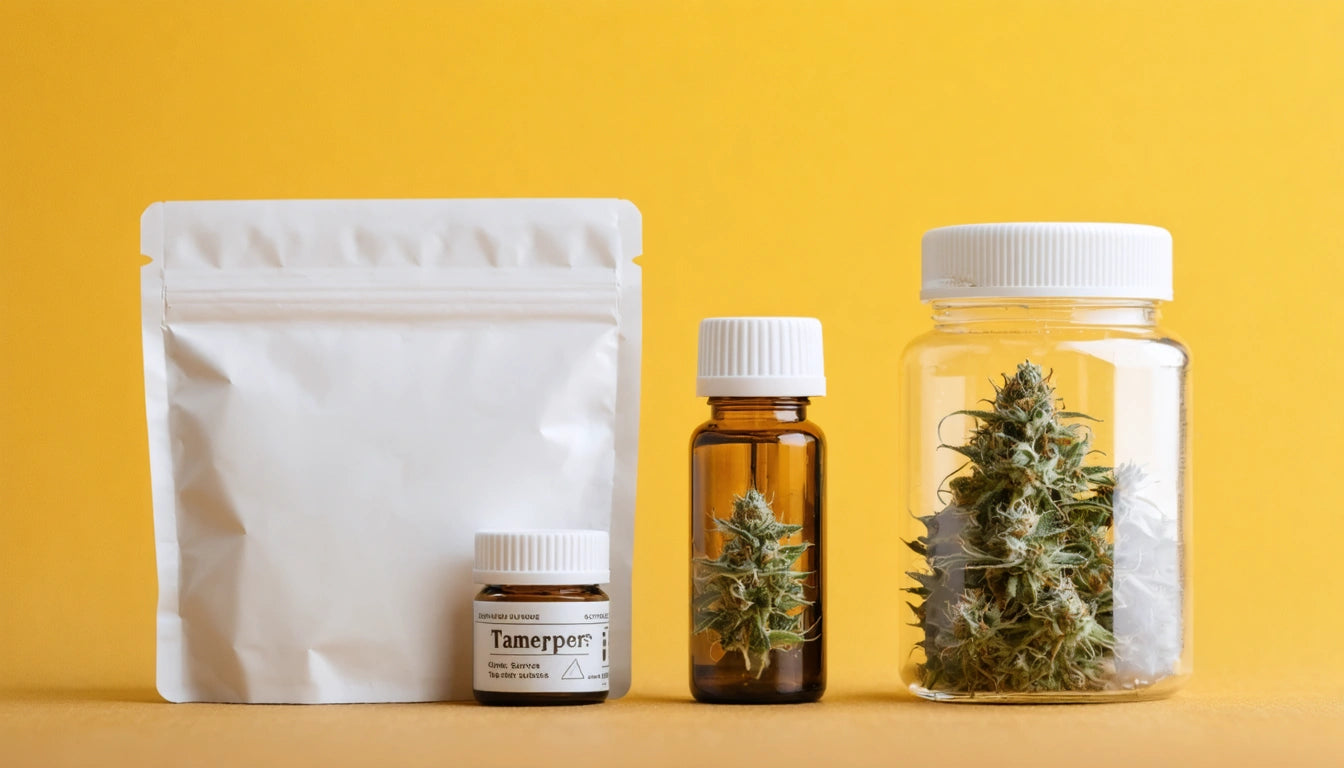Table of Contents
- Understanding Tamper-Evident Requirements for Cannabis
- Identifying Compliant Tamper-Evident Components
- Sourcing Strategies for Tamper-Evident Solutions
- Quality Assurance Testing for Tamper-Evident Features
- Integration Considerations for Production Lines
- The Future of Tamper-Evident Sourcing in Cannabis
Securing tamper-evident components for cannabis packaging that satisfy both state and federal regulations presents unique challenges for operators. These specialized packaging elements serve as the first line of defense against product tampering while demonstrating regulatory compliance and building consumer trust. This guide explores effective strategies for sourcing compliant tamper-evident solutions that balance regulatory requirements with brand aesthetics and operational efficiency.
Understanding Tamper-Evident Requirements for Cannabis
Before sourcing components, it's essential to understand what constitutes tamper-evident packaging in the cannabis industry. According to industry standards, tamper-evident features must provide visible evidence if a package has been opened or compromised after initial sealing.
The regulatory landscape varies significantly across jurisdictions, with requirements differing by:
- Product category (flower, edibles, concentrates)
- State-specific regulations
- Federal packaging guidelines
- Target consumer demographics (medical vs. recreational)
A comprehensive breakdown of regulatory requirements by product type shows that edibles and tinctures typically face the strictest standards, while flower products may have more flexibility depending on the jurisdiction.
Identifying Compliant Tamper-Evident Components
Common Tamper-Evident Solutions
Several proven tamper-evident mechanisms have gained regulatory approval across multiple states:
- Shrink bands and sleeve seals
- Pressure-sensitive security labels
- Perforated seals and break-away closures
- Heat-sealed barriers
- Blister packaging with sealed backing
Each solution offers different benefits in terms of visibility, durability, and integration with existing packaging. For example, shrink bands and break tabs provide highly visible tamper evidence while allowing for customization with brand colors and logos.
Dual-Function Components
Many operators seek to combine tamper-evident features with child-resistant functions to meet multiple regulatory requirements with a single component. Strategies for combining these features can reduce packaging complexity and costs while ensuring compliance.
Sourcing Strategies for Tamper-Evident Solutions
Finding reliable suppliers for compliant tamper-evident components requires a strategic approach:
Vendor Qualification
Evaluate potential suppliers based on:
- Regulatory knowledge and compliance history
- Quality certification (ISO, GMP, etc.)
- Production capacity and lead times
- Minimum order quantities
- Customization capabilities
Request documentation proving their components meet relevant standards, including test reports and compliance certificates.
Cost Considerations
Budget constraints are a reality for many cannabis brands, especially smaller operations. Affordable tamper-evident options include standard shrink bands, generic security labels with customizable printing, and stock tamper-evident closures that can be purchased in smaller quantities.
For brands with specialized equipment needs, industrial processing equipment suppliers often offer compatible application systems that can efficiently apply tamper-evident features during production, reducing labor costs over time.
Quality Assurance Testing for Tamper-Evident Features
Before committing to large orders, thorough testing is essential to verify component performance:
Pre-Launch Testing Protocols
Implement best practices for QA testing including:
- Environmental testing (temperature, humidity, light exposure)
- Transportation simulation (vibration, drop testing)
- Shelf-life verification
- Consumer usability testing
- Tamper simulation tests
Document all test results to demonstrate due diligence in selecting appropriate tamper-evident features that maintain integrity throughout the supply chain.
Integration Considerations for Production Lines
Successfully implementing tamper-evident components requires careful planning for production integration:
Scaling Application Methods
Packaging line integration strategies vary based on production volume:
- Manual application for small-batch producers
- Semi-automated solutions for mid-size operations
- Fully automated systems for high-volume manufacturing
Consider equipment compatibility, line speed impacts, and operator training requirements when selecting tamper-evident components.
Aesthetic Integration
Balancing compliance with brand presentation is critical. Design strategies that incorporate tamper-evident features without compromising visual appeal include:
- Custom-printed security labels that complement package design
- Color-matched shrink bands that blend with packaging
- Embossed or debossed seals that add premium tactile elements
- Integrated design features that make tamper evidence part of the brand experience
The Future of Tamper-Evident Sourcing in Cannabis
The tamper-evident component landscape continues to evolve with emerging technologies and shifting regulations. Forward-thinking brands are exploring:
- Smart packaging with NFC/RFID tamper detection
- Sustainable tamper-evident materials that reduce environmental impact
- Blockchain-verified packaging that authenticates product integrity
- Multi-function security features that address tampering, counterfeiting, and traceability in one solution
By staying informed about regulatory trends and technological advancements, cannabis brands can develop sourcing strategies that not only meet current requirements but also position them for future compliance and consumer expectations.











Leave a comment
All comments are moderated before being published.
This site is protected by hCaptcha and the hCaptcha Privacy Policy and Terms of Service apply.